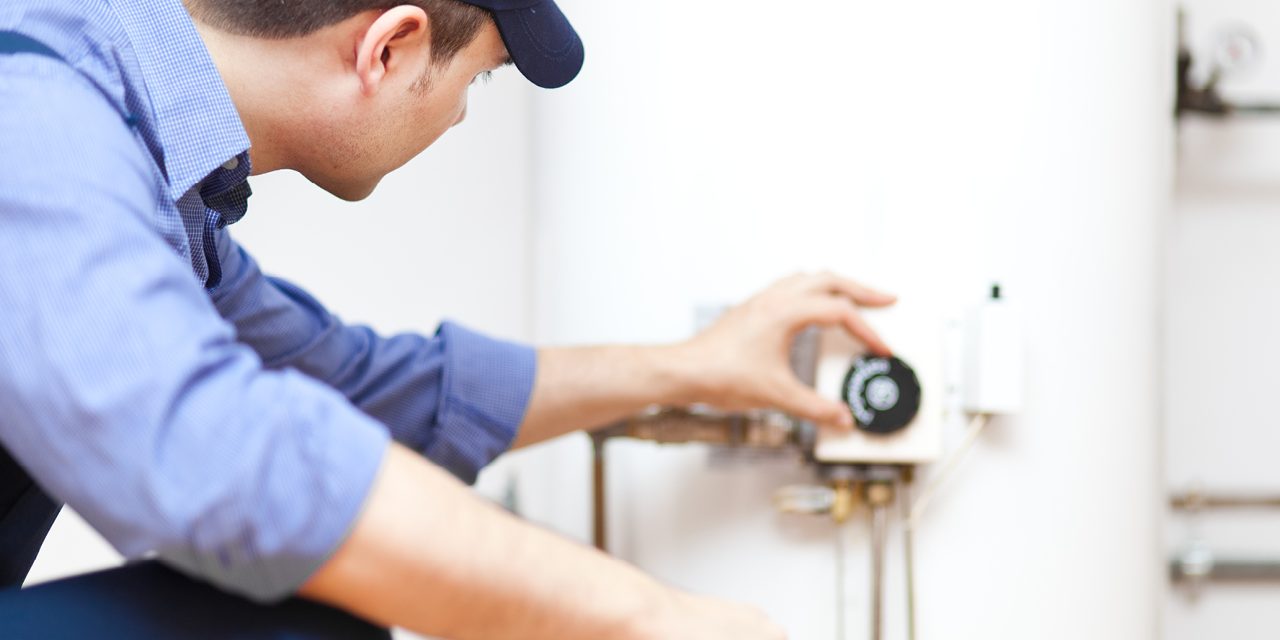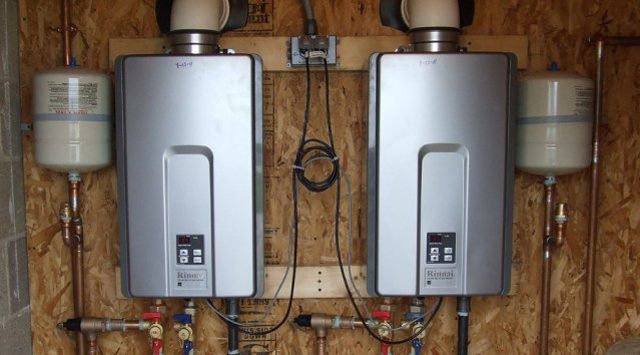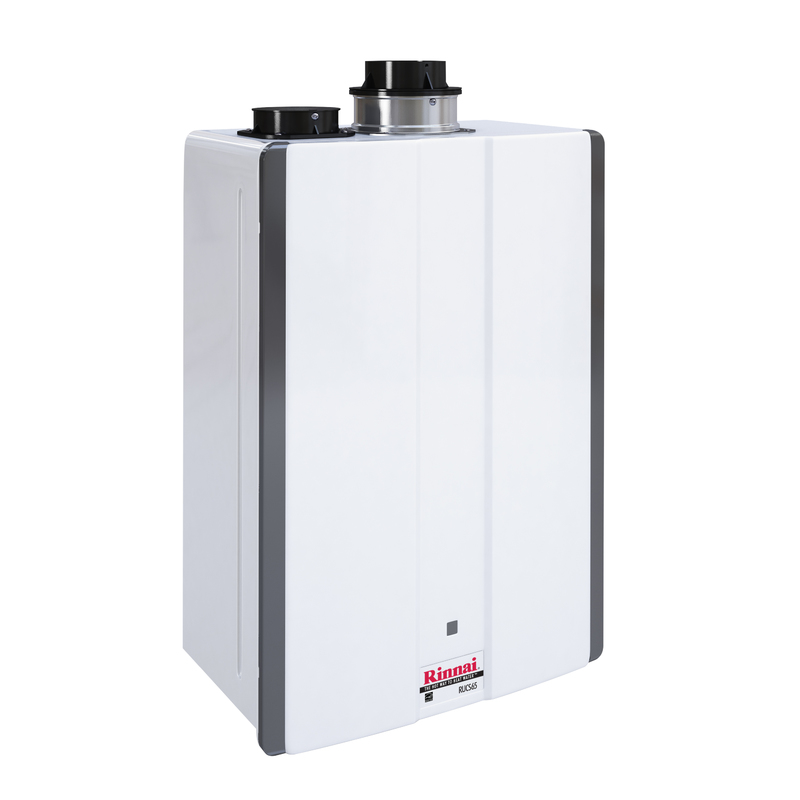ASK THE EXPERT: WATER HEATERS
Savings from turning off water heater
Turning off your water heater when you don’t need it could help you save a few bucks each month if you have a tank-style heater that’s standard in many homes or even one of the newer hybrid, or heat pump, systems. That’s because even though water heaters are well insulated, a small amount of heat does escape the tank while hot water is waiting for you to use it. That energy loss is typically about 10 percent. So, for an average FPL customer which we estimate spends a little under $20 every month to heat water, about $2 of that cost is due to heat loss. That’s money that you could save by turning off your water heater when you’re not using it.
And, you may be wondering if you’ll end up using more energy to heat water that’s cool because you’ve turned off the heater. Not really. Think of it this way — you’re paying to heat the water anyway, regardless of whether you heat it right before you use it or heat it and let it sit until your next use. The small cost savings comes from avoiding the escaped heat while it’s waiting for you to use it.
If your water heater has an on/off disconnect switch, we recommend turning on the water heater a half hour before you need it, giving the unit time to heat your water. Then, you should shut it off again just before you start using hot water. Why? Well, if you wait until after a shower, for example, to turn off your water heater, it will start heating the new water that fills the tank, leaving you with another full tank of hot water and the escaped heat situation that you’re trying to avoid.
I imagine some of you might worry that you’d run out of hot water if you turned off your water heater before hopping in the shower. Keep in mind, your tank has a certain amount of hot water available at one time, and once it’s used, it takes time to reheat the tank as new water is added. So, essentially, you can run out of hot water regardless of whether you leave the water heater on during your shower or turn it off. Tankless water heaters are the only option that can supply hot water instantaneously.
What about timers?
Of course, you don’t need to turn off your water heater manually. You could always consider automating this step with a timer. This may save you some time, but possibly not the money you’re hoping for. You’ll need to weigh the cost of buying a timer and installing it against the estimated $2 monthly energy savings you could get from turning off your water heater manually.

WHY IS MY ELECTRIC WATER HEATER RAISING TEMP BY ITSELF?
THE WATER IN OUR ELECTRIC WATER HEATER GOT EXTREMELY HOT ON ITS OWN. ANY IDEAS WHY?
There are only a couple of things that will cause an electric hot water heater to raise its water temperature by itself. The first is a bad thermostat. A thermostat is designed to shut the temperature of the water off when it reaches the chosen temperature, but if the heat-sensing device goes bad, then the water temperature will continue to climb until the backup thermostat shuts off the power. Both thermostats need to be tested to see which one has failed. You will probably need a professional to pull it out and replace it. Unless you are very handy and know electrical safety, it is not recommended that you touch it. Electric water heaters typically have 240 volts going to the thermostat.
The other problem that could happen with an electric water heater is the tube surrounding the element, which separates the element from the water, may be damaged and the element may be heating the water directly. Generally you get hot water for a short period of time, then the element burns out. Sometimes you don’t notice that it’s gone because the other element continues to heat water. Every electric water heater has two elements, an upper element and a lower element. Both cycle to heat the water. An element is tested with an ohm meter; a small current is passed through the element to see if it is unbroken. If you get a reading from both poles of the element and it is within tolerance, then the element is still good. You have to test it with the power leads disconnected. Again, do not attempt this unless you know all of the safety procedures for 220 volts of power.
If the water heater is more than 10 years old, it is time to consider installing a new water heater. The time factor and parts for rebuilding the old water heater is the same as replacing it with a new one. You may be able to conserve more heat by installing a more energy-efficient model. Enough power may be conserved to eventually pay for the water heater. In addition, you may be able to easily convert to a tankless water heater that stores no hot water and is therefore even more energy efficient.

ARE TANKLESS WATER HEATERS GOOD?
Tankless water heaters , on demand water heaters and instantaneous water heaters are different names for the same thing – domestic hot water systems that do not include the storage tank that comes with traditional water heaters.
The drawback with traditional domestic hot water systems:
Traditional domestic hot water systems use gas or electricity to heat water that is stored in a central water tank, ready for distribution.
The main drawbacks of traditional systems are the standby and transfer energy losses that result from the intermittent use of the water, the fact that water remains stored along tank walls and in pipes, and the design of the tank heat exchanger.
The more efficient storage tank water heaters would include features such as:
additional tank insulation for better heat retention and reduced loss of heat through the walls of the tank (or “standby loss”);
improved heat exchangers to transfer more heat from the energy source to the water;
factory-installed heat traps that allow water to flow into the tank but present unwanted flow of hot water out of the tank.
Some advantages of tankless water heaters:
Since tankless water heaters do not include a tank, they heat water only when a faucet is opened. In their most rudimentary form, tankless water heaters consist of an electrical element or gas burner, around which the water circulates towards its point of use. By reducing the thermal losses to the environment, (which are inherent in conventional storage tank systems), instant water heaters can offer energy savings.

THE BENEFITS OF A TANKLESS WATER HEATER
What’s one of the worst things that happens in the morning. You get up, someone else is already in the shower, so you wait your turn, and the water is cold. Maybe you’re the last person in the house to hop in every morning. Perhaps you need run the washing machine while you get ready for the day. Or, you just like a nice long bath and shower but end up out in the cold by the end of it.
Whatever the reason for your hot water woes, a tankless water heater may be just the thing to warm up your Rochester home. Not only do they to keep you in hot water longer — in the good way, that is — but they’re also energy-efficient and save money on your heating bill, too
If a tankless water heater sounds too good to be true … well, it’s not. There are quite a few things to think about when you’re deciding if one is right for you. However, with a little research and preparation, you can enjoy virtually unlimited hot water while saving money and being energy efficient.
How Do Tankless Water Heaters Work?
With a tankless water heater, cold water travels to a small heating unit that’s located on the hot water line close to the faucet, showerhead or inlet valve on a washer or dishwasher. Once the water reaches the heater, the unit turns on and brings the water up to the temperature you want. When you stop running the water, the unit turns back off automatically.
This is very different from traditional water heaters. With these, dozens of gallons of water sit in a large tank that’s constantly being heated so that they stay warm. If you use too much of that water at once, you start running cold water because there’s no more warm water in the tank.
Efficiency Water Heaters
Why go high-efficiency?
Upgrading to an efficient water heater will save you money over time (upwards of $3,000), but that’s not the only benefit. A heat pump water heater, for example, will perform similar to – or better than – a conventional electric model (more on that below) and come with a longer warranty. If a water heater can do all that while using significantly less energy, why not make the switch?
What is a heat pump water heater?
Heat pump water heaters work like a refrigerator in reverse: They capture heat from the surrounding air and transfer it to the storage tank to heat the water. Using existing heat makes heat pump water heaters up to three times more efficient than conventional electric water heaters, which must generate their own heat using an electric resistance element. Because water heaters can make up about 20% of your electricity costs, this efficiency is key to lowering your electricity bill.
Is it time to replace yours?
If your water heater is over 10 years old, you should start thinking about replacing it. Water heaters typically start failing when they are 10 to 15 years old, but waiting until it breaks can be costly: The average insurance claim for water damage due to a failed water heater is $4,000. And to make things worse, you may be stuck without hot water or end up with a flooded home
Fuel source
Water heaters can be powered in a number of ways; electricity and gas are the most common types, and propane, oil and solar models also exist. Heat pump water heaters are ideal replacements for electric water heaters, since they are powered by electricity but inexpensive to run thanks to their ultra-efficient technology.
Tank capacity and water heater size
Make sure your new water heater can handle your household’s hot water usage by considering the number of bedrooms and bathrooms in your house